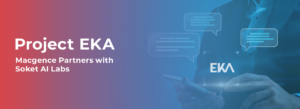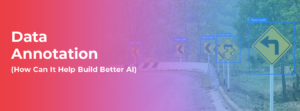The Impact of AI-Driven Education Solutions on Modern Classrooms
Undoubtedly, education has continuously been regarded as central to development and growth, and, in recent years, education has undergone an immense transformation with AI (Artificial Intelligence) revolutionizing the sector. With its potential to enhance teaching and learning processes, and streamline administrative affairs, ‘AI-Driven Education Solutions’ are changing how education is delivered and received.
This particular blog covers how AI is changing the education aspects of teaching, learning processes and the future of learning. It is also pertinent to note the pros and cons that come with this technology, along with existing tools that empower educators to effectively change their pedagogical practices.
Now, whether you are a teacher, are interested in EdTech or are simply curious with the relationship between AI and education, guarantee you will acquire relevant information for better understanding this field and practical measures for infusing AI into classes or institutions.
The Transformative Role of AI in Education
Artificial intelligence is no longer just a futuristic concept; it’s actively changing the education landscape. By leveraging vast datasets, predictive algorithms, and natural language processing, AI-driven education solutions offer intelligent, data-informed insights to support teachers and learners.
Key areas where AI makes an impact include personalizing learning paths, automating tedious tasks such as grading, and providing instant feedback to students. Importantly, platforms like Macgence, which provides data to train AI/ML models, play an instrumental role in powering these AI solutions and bridging the gap between cutting-edge technology and real-world application in classrooms.
The Impact of AI on Teaching and Learning
AI’s influence in education extends well beyond making processes faster. Here’s how it’s changing the game for both teaching and learning.
Enhancing Teaching Approaches
Artificial intelligence enables educators to shift their time and focus from repetitive administrative tasks to meaningful engagement with their students. AI-driven platforms help with tasks such as:
- Automated Grading: Tools that assess essays, quizzes, and assignments with consistent fairness.
- Curriculum Assistance: Programs that analyze student performance and help adjust lesson plans dynamically to address learning gaps.
Improving Student Learning Experiences
For students, AI unlocks new ways to learn and interact with educational content.
- Adaptive Learning Paths: Tailored programs that cater to individual pace, style, and competency levels. For instance, some systems assess students’ progress and recommend content that suits their learning needs.
- Instant Feedback: Platforms offer instantaneous feedback to students, enabling real-time improvement without waiting for human grading.
AI-Driven Educational Tools and Platforms
A range of tools and platforms geared towards educators and learners is driving AI integration in education. The following are just some of the prominent representatives on the market today:
- Knewton: Apply adaptive technology that enables students to receive personalized materials while teachers are being assisted with tools to monitor performance patterns.
- Grammarly: An AI tool that provides feedback on students’ writing grammar, punctuation, style, and overall writing outcomes.
- Duolingo: An AI language learning app that changes the lessons and exercises based on the student’s performance.
- DreamBox: Engages students through interactive, self-paced lessons focused on mathematics.
- Proctorio: AI-supported proctoring provides intelligent monitoring for maintaining examination integrity.
Many of these tools are fueled by data providers like Macgence, ensuring their algorithms deliver effective results tailored to educators’ and learners’ unique challenges.
Challenges and Opportunities of AI in Education
While there’s no doubt that AI-driven education solutions hold great promise, the path to widespread adoption does come with challenges.
Obstacles
- Cost of Implementation: The price of sophisticated AI instruments poses affordability challenges to most smaller institutions, resulting in scope for inequality.
- Data Privacy Concerns: Given that AI relies on large amounts of data, the exposure of students’ confidential information creates an opportunity for such risk.
- Teacher Training: Additional training is often required for educators to get accustomed to AI tools, and some of them are quite ‘set in their ways.’
Opportunities
Regardless of these barriers, it is evident that the potential scope is much greater than the challenges. We cannot ignore AI’s power to enhance educators’ effectiveness while directly addressing the lack of engagement, learning gaps, and the geographical divide in education.
The Future of Education with AI

Looking ahead, the future of education will likely include even deeper integration of AI, making learning more engaging, tailored, and efficient. Here are some upcoming trends to watch out for:
- AI Tutors: Custom AI-driven solutions providing 24/7 personalized tutoring for students around the world.
- Immersive Learning with AI-Powered VR/AR: Virtual and augmented reality environments that transport students into interactive, hands-on learning experiences.
- Better Collaboration with Educators: AI actively assisting teachers in classroom planning, performance analysis, and enriching their teaching methodologies.
With organizations like Macgence continuing to provide high-quality training data for AI/ML models, the evolution of AI in education will only accelerate, creating a smarter and more inclusive future for learners everywhere.
Where Do We Go from Here?
Policy briefs on the impact of AI on education underscore at the very onset that AI powered education technologies are now more of a requirement than a mere supplement. With these innovations, teachers and educational institutions can bridge the gap of possibilities that before, seemed insurmountable and form synergies between technology and knowledge.
Are you curious about using AI to improve your classroom dynamics or educational performances? If that’s the case, please share your thoughts in the comments section below because we are eager to hear your viewpoints. And remember, subscribing to our newsletter is essential to receive valuable information in regard to AI, EdTech, and the classroom of the future.
FAQs About AI in Education
Ans: – AI fosters personal learning experiences, automates monotonous workloads as well as generates reports. That offer insight to learners and educators, leading to enhanced productivity and participation in education.
Ans: – While initial costs may seem high, scalable solutions and competition are making AI tools more affordable. Providers like Macgence ensure efficient, cost-effective training data for effective AI development.
Ans: – AI offers personalized lessons, instant feedback for improvement, 24/7 tutoring, and engaging. Adaptive learning materials aimed at bridging learning gaps.
You Might Like
February 28, 2025
Project EKA – Driving the Future of AI in India
Artificial Intelligence (AI) has long been heralded as the driving force behind global technological revolutions. But what happens when AI isn’t tailored to the needs of its diverse users? Project EKA is answering that question in India. This groundbreaking initiative aims to redefine the AI landscape, bridging the gap between India’s cultural, linguistic, and socio-economic […]
March 24, 2025
Natural Language Generation (NLG): The Future of AI-Powered Text
The ability to generate human-like text from data is not just a sci-fi dream—it’s the backbone of many tools we use today, from chatbots to automated reporting systems. This revolution in artificial intelligence has a name: Natural Language Generation (NLG). If you’re an AI enthusiast or a tech professional, understanding NLG is essential for keeping […]
March 24, 2025
HITL (Human-in-the-Loop): A Comprehensive Guide to AI’s Human Touch
The integration of Artificial Intelligence (AI) in various industries has revolutionized how businesses operate. However, AI is not infallible, and many applications still require human intervention to enhance accuracy, efficiency, and reliability. This is where the concept of Human-in-the-Loop (HITL) becomes essential. HITL is an AI training and decision-making approach where humans are actively involved […]
March 7, 2025
Data Annotation – And How Can It Build Better AI in 2025
In the world of digitalized artificial intelligence (AI) and machine learning (ML), data is the core base of innovation. However, raw data alone is not sufficient to train accurate AI models. That’s why data annotations comes forward to resolve this. It is a fundamental process that helps machines to understand and interpret real-world data. By […]


 Previous Blog
Previous Blog







